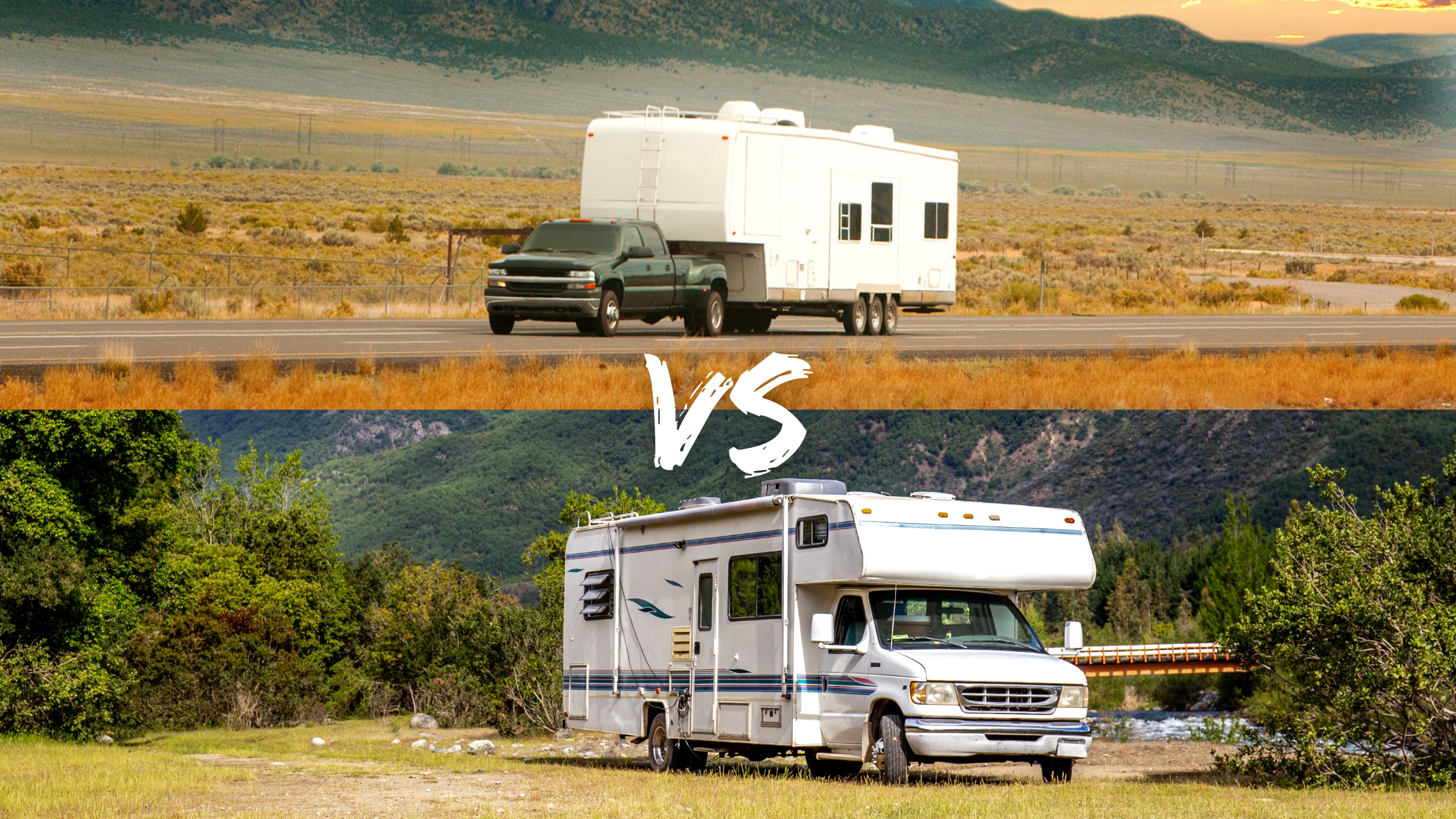
Trailer vs RV: Which is Right for Your Adventure?
Table of contents
As the popularity of recreational vehicles soars, many prospective adventurers face a crucial decision: trailer vs RV? This comprehensive guide explores the key factors in the RV vs travel trailer debate, helping both weekend warriors and full-time nomads make an informed choice. We’ll delve into the nuances of the RV vs trailer comparison, covering everything from cost considerations and mobility to living space and maintenance requirements. Whether you’re leaning towards an RV or trailer, understanding the pros and cons of each option is essential for selecting the perfect home-on-wheels. By the end of this travel trailer vs RV analysis, you’ll be equipped to choose the ideal option for your unique needs and adventure style.
Understanding the Basics: Trailer vs RV
Before diving into the details, it’s crucial to establish a clear understanding of what exactly we mean when we talk about trailers and RVs. While both fall under the broader category of recreational vehicles, there are fundamental differences that set them apart.
Trailers
A trailer, also known as a travel trailer or camper trailer, is a non-motorized unit that is towed behind a separate vehicle. Trailers come in various sizes and styles, from small pop-up campers to large fifth-wheel trailers. Key characteristics of trailers include:
- Require a separate towing vehicle
- Can be detached at campsites
- Generally more affordable than motorized RVs
- Wide range of sizes and layouts available
RVs (Motorhomes)
RV is a broad term that can encompass both trailers and motorized units, but for the purpose of this rv vs trailer comparison, we’ll focus on motorized RVs, also known as motorhomes. These are self-contained units that combine living quarters with a driving cab. RVs are typically categorized into three classes:
- Class A: Large, bus-style motorhomes
- Class B: Van-style motorhomes
- Class C: Mid-size motorhomes built on a truck chassis
Key characteristics of motorized RVs include:
- Self-propelled (no separate towing vehicle required)
- All-in-one living and driving solution
- Generally more expensive than trailers
- Range of sizes available, from compact to luxury models
The fundamental difference in the trailer vs RV debate lies in the integration of the living space with the driving mechanism. This distinction impacts various aspects of the camping and travel experience, from mobility and setup to cost and maintenance.

Cost Considerations: Comparing Trailers and RVs
One of the most significant factors in the RV vs travel trailer decision is the financial aspect. Let’s break down the cost considerations for both options:
Initial Purchase Costs
In general, trailers tend to have a lower upfront cost compared to motorized RVs. Here’s a rough breakdown:
- Small to medium travel trailers: $15,000 – $35,000
- Large travel trailers and fifth wheels: $35,000 – $100,000+
- Class B and C motorhomes: $50,000 – $150,000+
- Class A motorhomes: $100,000 – $500,000+
However, when considering a trailer, you must also factor in the cost of a suitable towing vehicle if you don’t already own one. This additional expense can narrow the price gap between a trailer and an RV setup.
Ongoing Costs
The rv vs trailer comparison extends beyond the initial purchase price. Consider these ongoing expenses:
- Fuel: RVs typically have lower fuel efficiency compared to a vehicle towing a trailer. However, if you need to upgrade to a more powerful towing vehicle for your trailer, the fuel costs may be comparable.
- Maintenance: RVs have more complex systems, including an engine and drivetrain, which can lead to higher maintenance costs. Trailers generally have simpler systems but still require regular upkeep.
- Insurance: RV insurance is often more expensive than trailer insurance, as it combines elements of auto and home insurance.
- Campground fees: Some campgrounds charge higher rates for larger RVs compared to trailers.
- Storage: If you don’t have space at home, storing an RV may be more expensive than storing a trailer due to its larger size.
Long-term Value
When it comes to depreciation and resale value, both trailers and RVs tend to depreciate quickly in the first few years. However, well-maintained units of both types can retain value over time. Trailers may have a slight edge in this area, as there are fewer complex systems that can fail or become outdated.
In the trailer vs RV debate, the cost factor often favors trailers for budget-conscious buyers. However, the convenience and all-in-one nature of an RV may justify the higher cost for some travelers.
Mobility and Flexibility: Pros and Cons
The RV vs travel trailer comparison takes an interesting turn when we consider mobility and flexibility. Both options offer the freedom to explore, but they do so in different ways:
Trailer Mobility
Pros:
- Can be detached at campsites, allowing use of the towing vehicle for local exploration
- Generally easier to maneuver in reverse due to the pivot point at the hitch
- Can be stored more easily when not in use
- Offers flexibility to upgrade the towing vehicle independently of the living space
Cons:
- Requires practice to become proficient at towing
- Limited access to some areas due to length and maneuverability challenges
- Setting up and breaking down camp takes more time and effort
RV Mobility
Pros:
- All-in-one solution allows for quick stops and easy setup
- Can access more locations, including some that might be challenging for trailers
- Easier to drive for those uncomfortable with towing
- Passengers can access living area while in motion (where legal and safe)
Cons:
- Less flexibility for local exploration unless towing an additional vehicle
- Larger RVs can be challenging to maneuver in tight spaces
- Some campgrounds and parks have length restrictions that may limit access for larger RVs
In the travel trailer vs RV mobility showdown, RVs often come out ahead in terms of convenience and ease of use, especially for those new to the RV lifestyle. However, trailers offer more flexibility once at the campsite, which can be a significant advantage for extended stays or those who prefer to explore extensively in each location.
Living Space and Amenities: Comparing Comfort Levels
When it comes to living space and amenities, the rv vs trailer comparison reveals some interesting differences:
Trailer Living Space
- Wide variety of floor plans available, from basic to luxurious
- Tend to offer more living space per foot of length compared to motorized RVs
- Often feature slide-outs to increase interior space when parked
- Can range from spartan to high-end, with options for every budget
- Generally offer good separation between living and sleeping areas
RV Living Space
- All-in-one design can lead to more efficient use of space
- High-end models often feature premium finishes and appliances
- Class A RVs can offer expansive living areas with multiple slide-outs
- Driving cab area can double as additional living space when parked
- Compact designs in Class B and C models can feel cramped for extended trips
Both options in the trailer vs RV debate can offer comfortable living spaces, but the layout and feel can be quite different. Trailers often provide more dedicated living space, while RVs integrate the driving and living areas, which can be an advantage or disadvantage depending on your preference.
Amenities
In terms of amenities, both trailers and RVs can be equipped with similar features:
- Kitchen facilities (stove, refrigerator, microwave)
- Bathroom with shower
- Sleeping areas
- Entertainment systems
- Climate control (heating and air conditioning)
Higher-end models of both types may include luxury features like washer/dryers, outdoor kitchens, and entertainment systems. The key difference often lies in the layout and integration of these amenities within the available space.
When considering the RV or trailer decision, think about how you plan to use the space and what amenities are most important for your travel style.
Maintenance and Upkeep: What to Expect
Maintenance is a crucial factor in the rv vs travel trailer debate, as it affects both long-term costs and the overall ownership experience:
Trailer Maintenance
- Regular checks on the towing system (hitch, brakes, lights)
- Tire maintenance and replacement
- Sealing and weatherproofing to prevent leaks
- Plumbing and electrical system upkeep
- Appliance maintenance and repair
RV Maintenance
All of the above trailer maintenance tasks, plus:
- Engine and drivetrain maintenance (oil changes, tune-ups, etc.)
- Generator maintenance
- More complex electrical and plumbing systems
- Chassis and suspension upkeep
In the trailer vs RV maintenance comparison, trailers generally come out ahead in terms of simplicity and potentially lower costs. However, RVs offer the convenience of having all systems integrated into one unit, which can streamline the maintenance process for some owners.
Regular maintenance is crucial for both options to ensure longevity and reliability. Many RV and trailer owners choose to perform basic maintenance themselves, while relying on professionals for more complex tasks.
Insurance and Legal Considerations
The RV vs trailer decision also has implications for insurance and legal requirements:
Trailer Insurance and Legal Considerations
- Often covered under an extension of your auto insurance policy
- May require additional coverage for personal property
- Typically lower insurance costs compared to motorized RVs
- Driver’s license requirements usually the same as for regular passenger vehicles
- Registration as a trailer, which is generally simpler and less expensive than RV registration
RV Insurance and Legal Considerations
- Requires a dedicated RV insurance policy, which is typically more comprehensive and expensive
- Coverage often includes both auto and home insurance elements
- Some states require a special driver’s license for larger RVs
- Registration as a motorized vehicle, which may involve higher fees and more paperwork
- May be subject to additional regulations, especially for larger Class A motorhomes
In the travel trailer vs RV insurance comparison, trailers generally offer a simpler and more cost-effective solution. However, RV insurance policies often provide more comprehensive coverage tailored to the unique needs of motorhome owners.

Choosing the Right Option: Factors to Consider
As we’ve seen throughout this rv vs trailer analysis, both options have their strengths and weaknesses. To make the right choice for your adventures, consider the following factors:
- Budget: Both initial and long-term costs
- Travel style: Weekend trips, extended vacations, or full-time living
- Comfort preferences: Space requirements and desired amenities
- Driving comfort: Towing experience vs. driving a larger vehicle
- Campground preferences: Types of campsites you plan to visit
- Maintenance willingness: Your ability and desire to handle upkeep
- Resale plans: How long you intend to keep the unit
Remember, there’s no one-size-fits-all answer in the RV or trailer debate. What works best for one traveler may not be ideal for another. Consider renting both types of vehicles for short trips to gain firsthand experience before making a purchase decision.
Protect Your Adventure Home: Get Custom Skirting Today!
You’ve chosen your perfect home-on-wheels, now protect it with the nation’s #1 RV skirting solution!
Why Choose Custom Skirting:
- Custom-tailored on-site for a perfect fit
- Exclusive “No-Snap, No-Gap” system for superior protection
- Withstands harsh winters across North America
- Easy to set up and move with you
- Trusted by thousands of RV and trailer owners
Don’t wait for bad weather to strike. Protect your investment now and travel worry-free, perfect for both RVs and travel trailers. Hit the road with confidence!
